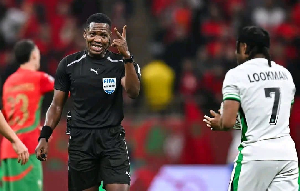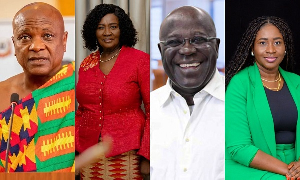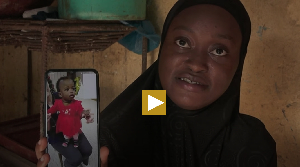Business News of Friday, 5 September 2008
Source: GNA
Common ground to begin Doha Round needed - OECD
Accra, Sept. 5, GNA - A common ground to break through the current impasse of the Doha Round trade talks is needed, Mr Angel Gurria, Secretary General of the Organisation of Economic Cooperation and Development (OECD) reminded world leaders at the final day of the Accra Third High Level Aid Effectiveness forum on Thursday.
He said concluding the round was vital and that: "We must give Mr Lamy (The WTO Boss) all the support that he needs to get there, to create confidence in the future at this difficult juncture in the world economy."
Mr Gurria said during the Ministerial meeting of the forum that he was confident that delegates would achieve the necessary consensus around the Triple 'A' (Accra Agenda for Action) and sent a loud message to the world that governments are serious about making development issues.
He said international attention to the development agenda was vital at this time and that at the OECD Ministerial Meeting in June, ministers instructed the organisation to continue to put the highest priority on addressing the challenges of scarce resources, inequality and global poverty.
Mr Gurria said reform must include everyone, who made policies at the global, national and village levels and the OECD was currently in the process of enlarging its membership with Chile, Israel, Estonia, Russia and Slovenia. At the same time it is enhancing its relations with Brazil, China, India, Indonesia and South Africa with a view to possible membership.
On the AAA, he said, what mattered most was how it would be implemented. "We all as partners have to implement the agenda and make it more than just a piece of paper." "This means acting on our words, pushing out the frontiers of best practice, bringing new partners into the consensus and learning from others," he said and added that that would require strong political support.
He recalled that at the Hong Kong WTO Ministerial meeting in 2005, it was agreed that aid for trade was a crucial frontier for working towards inclusive globalisation.
"In the past donors have stood in the way of accountable governance of aid in recipient nations," making governments accountable to their donors more than their parliamentarians and citizens. Now it's time to change."
"We need to improve aid effectiveness to make tangible improvements in the lives of the world's poorest people," he said.












